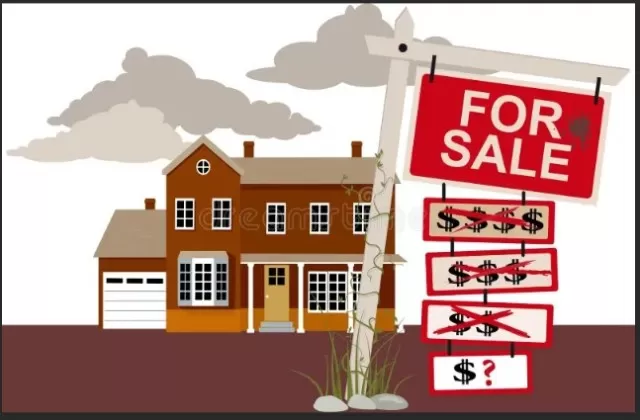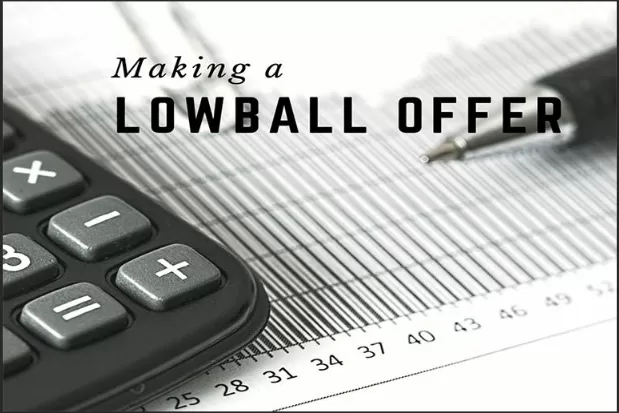When to Consider Accepting a Lowball Offer. Selling a home is often an emotional and financial milestone, and understandably, homeowners aim to secure the best possible price to recoup their substantial investment. When faced with a “lowball” offer from a potential buyer, typically ranging from 20 to 50 percent below the asking price, it’s natural to feel insulted and disheartened. Real estate professionals often advise sellers to avoid or counteroffer lowball bids, seeking more favorable terms.
However, there are scenarios where accepting a lowball offer can be a strategic and sensible decision.Ultimately, the decision to accept a lowball offer should be based on a comprehensive evaluation of your unique circumstances, the local real estate market, and your financial objectives. While it can be disheartening to receive such offers, they can serve as opportunities to engage in productive negotiations or secure a sale in challenging conditions. Balancing your emotional attachment to your home with financial prudence is key to making a well-informed choice.
Is Your Home Lingering on the Market? It May Be Time to Reevaluate

There’s a popular belief that if a house remains unsold for an extended period, there must be an inherent issue with it.
While this isn’t always the case, there’s some truth to the notion that if your property has been listed for months on end, it may be worth revisiting your initial asking price. Tony Harrington, a seasoned realtor, highlights that potential buyers who seek bargains often target properties that have lingered on the market for an extended duration, assuming they can secure them at a reduced rate as competition dwindles.
If your listing has grown stale and isn’t generating significant interest, this mentality of seeking lower offers could be justified. In such a scenario, it might be advantageous to contemplate a negotiation to breathe new life into your property sale.
Finding the Sweet Spot for Your Home\’s Price: A Constantly Evolving Journey
Determining the ideal price for your home often involves aligning it with recent sales in your neighborhood.
Real estate professionals routinely conduct comprehensive market analyses, factoring in variables such as location, the number of bedrooms and bathrooms, and square footage when establishing an initial asking price. However, it’s crucial to recognize that these comparative market assessments have a limited shelf life. As Kyle Hiscock from Rochester Real Estate Blog aptly points out, “A comparative market analysis usually has a ‘shelf-life’ of only a couple of months, since the real estate market changes daily. “.
In light of this fluidity in the real estate landscape, if your house has remained on the market for an extended duration, it may be prudent to consider adjusting your asking price.
As Hiscock observes, “the real estate market is constantly changing. it’s possible that the price your home is listed at is no longer competitive in the market.
” Embracing this adaptability and being open to price adjustments can be pivotal in successfully selling your home, ensuring that it remains in sync with the ever-evolving market dynamics.
Juggling Two Houses? It Might Be Time to Entertain Lower Offers

A home often represents the most significant asset and investment in an individual’s life, and maintaining two residences with their associated financial obligations can be financially challenging.
Balancing mortgage payments, property taxes, and upkeep for both homes can strain your resources. If you find yourself in a situation where you’ve already purchased another house and need to offload one, you may start to find lower offers increasingly enticing.
The practicality of selling one property at a potentially reduced price may outweigh the financial burden of holding onto both residences. It’s a strategic move that allows you to free up resources and streamline your financial responsibilities, ultimately ensuring a more secure and manageable future.
Navigating the Buyer\’s Market: The Power of the Lowball Offer
Real estate is known for its cyclical nature, dancing to the rhythm of supply and demand.
In a seller’s market, housing inventory is scarce, and prospective buyers compete fiercely for available properties. However, when the tides turn and it becomes a buyer’s market, the tables are reversed. In this scenario, potential buyers enjoy a surplus of options, while supply outpaces demand. When the market is flooded with listings, the value of homes can plateau or even decline, creating an environment where submitting a lowball offer may be your most strategic move.
In such circumstances, seizing the opportunity to make a lower offer can be a savvy choice.
While it may seem unconventional, it reflects the reality of the market, where sellers may be more open to negotiation due to increased competition. A well-timed, well-calculated lowball offer could be the key to securing a favorable deal in a buyer’s market, making the most of the market’s dynamics to your advantage.
Beyond the Price: Considering Buyer Incentives in Real Estate Deals

Bill Gassett, an expert in Maximum Exposure Real Estate, wisely emphasizes that in real estate transactions, the selling price of a home isn’t the sole factor to consider.
While achieving your desired asking price is undoubtedly appealing, there are other valuable incentives that a buyer can offer to sweeten the deal.
Imagine a scenario where a potential buyer is ready to make concessions that could significantly benefit you as a seller.
For instance, they might propose putting down a more substantial earnest money deposit, offering a cash payment, or committing to a rapid closing process. These incentives can add substantial value to the deal and make it more enticing, even if it means being flexible with the selling price.
Furthermore, a buyer’s mortgage preapproval can be a game-changer in expediting the sale.
It signifies their readiness and financial capability to proceed with the purchase, instilling confidence and reducing uncertainties in the transaction.
In the world of real estate, being open to considering and negotiating these additional buyer incentives can pave the way for a smoother and more advantageous sale, ultimately benefiting both parties involved.
*The information is for reference only.